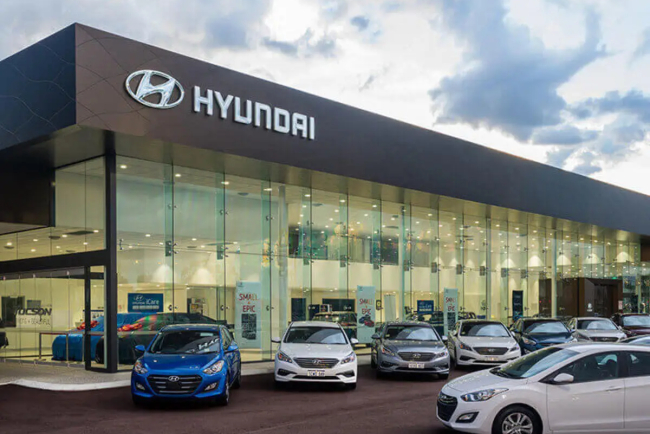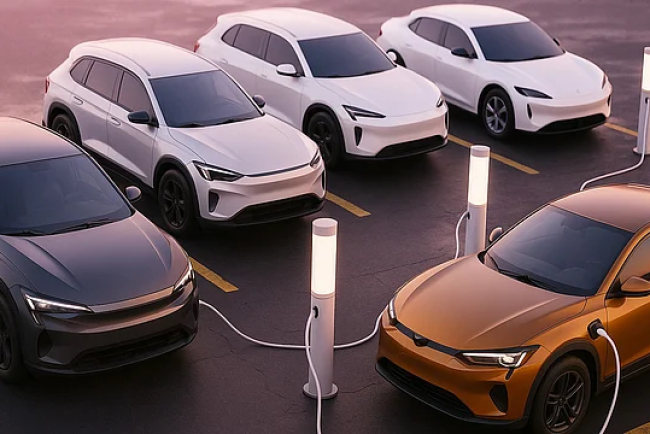BMW Drives Sustainability with Circular Economy Investments

BMW Makes Sustainable Way With Circular Economy Investments
BMW is investing significantly in a huge, broad vision of the circular economy for the future. It plans this transition that will extend to the overall reduction of carbon footprints and improvement of the environment relative to its production processes. Being an industry leader, BMW is strategically positioning itself by investment in 'clean' technologies, recycling systems, and new business models to change the nature of the manufacturing process towards becoming sustainable.
The principle of the circular economy is founded on waste reduction, reusing materials, and recycling product at the end of their life cycle. BMW ensured the world that BMW has long-term environmental goals, so the company promised to be fully sustainable within its production processes by 2030. It includes using more recycled and renewable materials in the production process of the vehicles and parts as well as reuse materials in the supply chain.
BMW has heavily invested in sustainable production by focusing on making its car plants, and indeed in the whole chain of value production, completely sustainable. For example, it developed a recycling process for the lithium-ion batteries, which are a major component in the construction of electric cars. This would reduce dependency even more on raw material production and cut most of the activities that cause erosion through mining.
Further, BMW has also partnered with some recycling and waste companies to establish systems that would process massive quantities of scrap metal, plastic, and many more materials that are considered to be associated with the auto industry. This way, BMW is positioned to recover these valuable resources from the waste products and recycle the materials back into the production cycle, thus saving on virgin material consumption.
Besides material recycling, BMW sees cars as part of the circular economy. This means offering designs that are more modular to allow easy disassembly, repair, and reuse of automobile parts. In this regard, BMW's current cars are designed with parts being reused at the end of life. This means that the content in the vehicle is of a higher quality, and the same can be easily recycled or repurposed at the end of the car's life.
Electric vehicle production is at the core of the concept proposed by BMW for circular economy. Electric vehicle production is also the focus of the company as part of its orientation towards electric vehicles. BMW is investing in the green energy system that saves carbon emission related to electric vehicles. This will bring the company closer to achieving sustainability, where it will be able to serve the cause for environmental objectives and regulations all over the world.
New business models for the circular economy include services such as vehicle leasing and sharing at BMW. They are geared towards reducing car ownership to every person even as access to these vehicles is maintained in the pursuit of better transport. It supports consumption patterns that can be sustained by saving the total number of vehicles that are on the road and, in turn, reduces the eventual impacts on the environment.
Besides, BMW's circular economies initiatives are in line with a wider strategy towards sustainability for the whole automotive sector. As more stringent environmental rules are being rolled out by various governments and sustainable products are now increasingly demanded by consumers, the investments of BMW in circular economy principles ensure the company is placed at the lead of the changeover of the industry to the more sustainable path.
The company also commits to sustainability through investments it is making in renewable energy. BMW targets that all the energy used for its production shall come from renewable sources. This will be an attempt to reduce further carbon footprints and increase efficiency in terms of energy in operations.
Conclusion:Its efforts don't end here with its enterprise activities; BMW takes it one step forward and extends it into the supply chain. Currently, it collaborates with its supplier network by engaging them to take up circular economy practices so that sustainable materials are perused in every part of the entire production process. This means, through its supply chain cooperation with its network of suppliers, BMW can be on a reduction course so it may not affect the environment, which would enhance sustainability in the automotive ecosystem at large. In a nutshell, the investments BMW is doing into a circular economy are positioning this German company at the forefront of sustainability in the automotive industry. New technologies, improved recycling processes, and innovative business models work together to make environmental footprint better for BMW and create a more sustainable future. The rising trend in the automotive industry will make BMW's commitment to circular economy principles imperative to the shaping of that future.
What's Your Reaction?

















